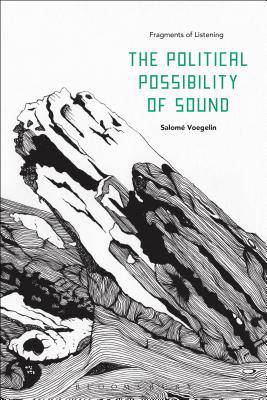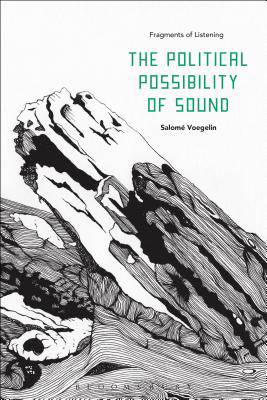
Bedankt voor het vertrouwen het afgelopen jaar! Om jou te bedanken bieden we GRATIS verzending (in België) aan op alles gedurende de hele maand januari.
- Afhalen na 1 uur in een winkel met voorraad
- Gratis thuislevering in België vanaf € 30
- Ruim aanbod met 7 miljoen producten
Bedankt voor het vertrouwen het afgelopen jaar! Om jou te bedanken bieden we GRATIS verzending (in België) aan op alles gedurende de hele maand januari.
- Afhalen na 1 uur in een winkel met voorraad
- Gratis thuislevering in België vanaf € 30
- Ruim aanbod met 7 miljoen producten
Zoeken
€ 220,45
+ 440 punten
Uitvoering
Omschrijving
The essay is the perfect format for a crisis. Its porous and contingent nature forgives a lack of formality, while its neglect of perfection and virtuosity releases the potential for the incomplete and the unrealizable. These seven essays on The Political Possibility of Sound present a perfectly incomplete form for a discussion on the possibility of the political that includes creativity and invention, and articulates a politics that imagines transformation and the desire to embrace a connected and collaborative world.
The themes of these essays emerge from and deepen discussions started in Voegelin's previous books, Listening to Noise and Silence and Sonic Possible Worlds. Continuing the methodological juxtaposition of phenomenology and logic and writing from close sonic encounters each represents a fragment of listening to a variety of sound works, to music, the acoustic environment and to poetry, to hear their possibilities and develop words for what appears impossible.
As fragments of writing they respond to ideas on geography and migration, bring into play formless subjectivities and trans-objective identities, and practice collectivity and a sonic cosmopolitanism through the hearing of shared volumes. They involve the unheard and the in-between to contribute to current discussions on new materialism, and perform vertical readings to reach the depth of sound.
The themes of these essays emerge from and deepen discussions started in Voegelin's previous books, Listening to Noise and Silence and Sonic Possible Worlds. Continuing the methodological juxtaposition of phenomenology and logic and writing from close sonic encounters each represents a fragment of listening to a variety of sound works, to music, the acoustic environment and to poetry, to hear their possibilities and develop words for what appears impossible.
As fragments of writing they respond to ideas on geography and migration, bring into play formless subjectivities and trans-objective identities, and practice collectivity and a sonic cosmopolitanism through the hearing of shared volumes. They involve the unheard and the in-between to contribute to current discussions on new materialism, and perform vertical readings to reach the depth of sound.
Specificaties
Betrokkenen
- Auteur(s):
- Uitgeverij:
Inhoud
- Aantal bladzijden:
- 240
- Taal:
- Engels
Eigenschappen
- Productcode (EAN):
- 9781501312151
- Verschijningsdatum:
- 1/11/2018
- Uitvoering:
- Hardcover
- Formaat:
- Genaaid
- Afmetingen:
- 152 mm x 229 mm
- Gewicht:
- 494 g

Alleen bij Standaard Boekhandel
+ 440 punten op je klantenkaart van Standaard Boekhandel
Beoordelingen
We publiceren alleen reviews die voldoen aan de voorwaarden voor reviews. Bekijk onze voorwaarden voor reviews.









